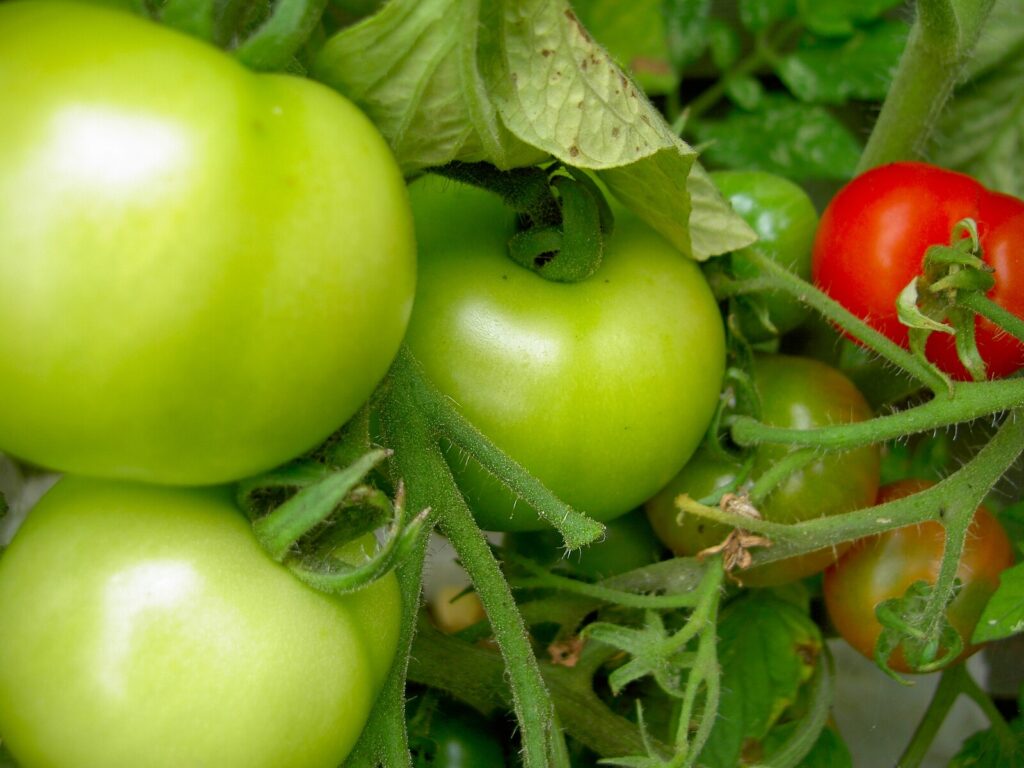Like a lot of you, my tomatoes and peppers are slow to ripen this year. The cause? Smoke from wildfires. The atmosphere may not look smoky, but the UV blocking layer is several thousand feet above us.
Purdue University assessed the effects of haze and reduced air quality from wildfire smoke on corn in June. Researchers found the solar radiation decreased by 32% compared to the week prior (June 12) and the week after (June 31) in West Lafayette.

Smoky atmosphere blocks light
Smoky haze reflects light rather than letting it shine through. The light that does come through is diffused, which provides light to more parts of the plant, such as the lower leaves of corn. However, ground level ozone readings increase, which affects certain crops like soybeans.
The diminshed or fractured sunlight has slowed the ripening of food in our home gardens. We’re harvesting about a month later than usual. Tomatoes, peppers, eggplant, corn and other crops require full sun exposure, not hazy sun exposure.
This year’s environmental challenges
Smoky haze is only one of the environmental challenges we’ve had in the vegetable garden this year. We contended with intense heat and lack of rain. Bees and other pollinators are inactive during heat (or cold). Inactive or too few pollinators mean some crops, such as those in the squash family, won’t get pollinated fully, if at all. Fruits may be small or misshapen.
Mother Nature has thrown us a lot of curves this year. Our long, cool spring delayed planting because it took a little bit longer for the soil to warm up, especially for pepper and tomato plants. Remember the attack of the aphids? Then, the smoke rolled in, and the temperatures increased along with the humidity. Apparently, we broke/hit a dew point record.
What can you do about slow ripening?
There’s not a lot we can do about the slow ripening, except maybe hope the weather stays warm enough, long enough for veggies to ripen. This could be another one of the lessons, where gardening teaches us patience.